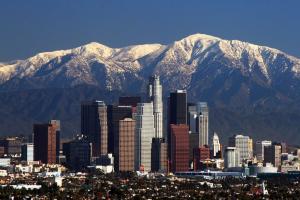 I know deep in my soul that I am a racist. No, I do not overtly despise persons of races other than my white one, though it is now loudly debated whether “white” represents any sort of race at all. At least, in my case, when I have to fill out one of those forms I invariably choose “Anglo” or some equivalent thereof. Now that I live in California those ubiquitous forms ask me if I am non-Latino, or Latinx (also Chicanx is used), if the form is really current with the lingo of the day. No one would ever say that I am Latinx; my 7/8 German pedigree, in addition to my English 1/8, shines through all too clearly. But in the light of all my white privilege, my whiteness, my social privilege, I am surely racist.
I know deep in my soul that I am a racist. No, I do not overtly despise persons of races other than my white one, though it is now loudly debated whether “white” represents any sort of race at all. At least, in my case, when I have to fill out one of those forms I invariably choose “Anglo” or some equivalent thereof. Now that I live in California those ubiquitous forms ask me if I am non-Latino, or Latinx (also Chicanx is used), if the form is really current with the lingo of the day. No one would ever say that I am Latinx; my 7/8 German pedigree, in addition to my English 1/8, shines through all too clearly. But in the light of all my white privilege, my whiteness, my social privilege, I am surely racist.
I am 73 years old, and have had my privilege all that time. At no time in my years was I ever judged by the shade of my skin. When I entered a room, hardly anyone gave me a second glance, because they just knew I belonged. Never was I questioned by some person in authority about why I was in a certain place, or why I was acting as I was; never was I given “that look” when I asked a question about something that I did not immediately understand. When I was a member of a theological faculty for 33 years, my whiteness was a free pass to the corridors of power and success, and when I spoke my mind in a faculty meeting, I was listened to with respect and careful attention. After all, I was automatically one of the club. This was hardly the case with my female colleagues or those around the table who were African-American, Asian, or Latino/a. I observed that those faculty colleagues had to prove their value to sit at that table time and again, simply because they were not accepted as “one of us.” Too many times in those countless meetings, I sat silently while one or the other of my non-white colleagues were treated somehow differently than I was. And because of that, I am convinced that I am still a racist.
I am not by repeating that charge against myself trying to “beat myself up,” nor am I fishing for someone to say, “Oh no, John. Not you! You have always treated everyone exactly the same way!” They are wrong. I have not related to non-white colleagues in the same way that I have interacted with those who are white. Subtly or horribly sometimes not so subtly, I have claimed a sort of color-blindness that I actually did not have. President Donald Trump may claim that he “does not have a racist bone in his body,” but his actions and words belie that claim nearly every day. His continuous denigration of African-Americans (e.g. the Central Park five); immigrant Latinos/as (the “infestation of rapists and murderers” and a Latino judge, who because he is Latino could obviously not give fair judgment against the white president), and many other non-white persons, demonstrates beyond a shadow of doubt that he is certainly a racist. No amount of political blather will protect him from that charge. But I cannot hold myself up as some non-racist who has overcome my racism, unlike this current occupant of the White House. No, if I am honest, I am still a racist. I do judge my fellow humans in part due to the way they look or talk or act. I have a long way to go to overcome this weakness, and I doubt I ever will completely overcome it in the few years left to me.
I might offer a somewhat lame excuse for my racism. I grew up in a deeply segregated Phoenix in the 1950’s. The first African-American girl entered my high school when I was senior; she was one of nearly 3000 students! There were no Latinos/as at all, though the city had a very large Latino/a population. Even in my college in the early 1960’s, a decidedly progressive place, there were very few African-American students, only two African-American faculty members. Thus, my interaction with non- whites was minimal to non-existent. And in my seminary in the late 60’s and early 70’s, there was a tiny group of African-Americans and an equally tiny group of Latinos/as. This was true though that campus had been purposefully integrated in 1954; that integration did not bring forth an increasing cadre of non-white candidates for ministry. And I fear that the percentage of non-whites while I was on the faculty from 1979-2012, though larger to be sure, never came close to matching the percentages one finds in the general population. In short, my relationships to non-whites have been quite minimal in my lifetime, and as a result I have remained a racist.
I do not think I am alone in this reality. The USA in 2019 is far from a post-racial society. Yes, we have elected our first African-American president, but immediately upon his leaving office, we elected a clear racist, who continues to tap into his astonishingly public racism in multiple ways. No, he and I are not members of the KKK; no, we are not on the danger lists of the Southern Poverty Law Center; no, we are not followers of George Lincoln Rockwell and the American Nazi Party. But we are racists still. You will need to say whether or not you are among our number.
Living in Los Angeles is very pleasant for us liberals; our number here is legion! Our state legislature is about to pass a law that mandates the teaching of an ethnic studies class in all public high schools and throughout the massive California State university system. The new class, if required as the bill suggests, will affect 6.5 million California students. As you can imagine, this bill has created more than its share of controversy. Those who reject the mandated class altogether are terrified by their perceptions about those academics who have crafted the bill; they find the academic fields surrounding ethnic studies dominated by what they call one-sided, insular political correctness and separatism. Those in favor of the proposed class want to see their students grapple with the weighty issues that I never in my high school or directly in my college and seminary, struggled with, namely inequality, hate speech, police brutality, polarized political discourse, immigration raids, and mass shootings. How can we not talk about these vastly important questions in our schools? I never did, and as a result I am a racist.
Of course, taking a class that allows or demands that these issues be confronted in the context of a multi-race classroom is hardly a guarantee of creating a post-racial society. But it surely is no bad thing to talk about all this when the culture is so seriously fractured and too often along clear racial lines. I feel certain that if I had had to address my white privilege in the presence of non-white persons who could have helped me engage that privilege, however painful that engagement might have proved to be, I might not have grown up the racist that I am. In some sense, being a racist is something like being an alcoholic; to get to a sober life, one must first admit to oneself and to others that one has a real problem with alcohol. Both Donald Trump and I need to come clean about our racism. As an educator, and on occasion an educator of non-white students, I have struggled hard to address this serious weakness in my life. Though I am still a racist, I pray that I am at least a recovering one who daily attempts to address his problem. Will you join me in that struggle? (final two pictures from Wikimedia Commons)










